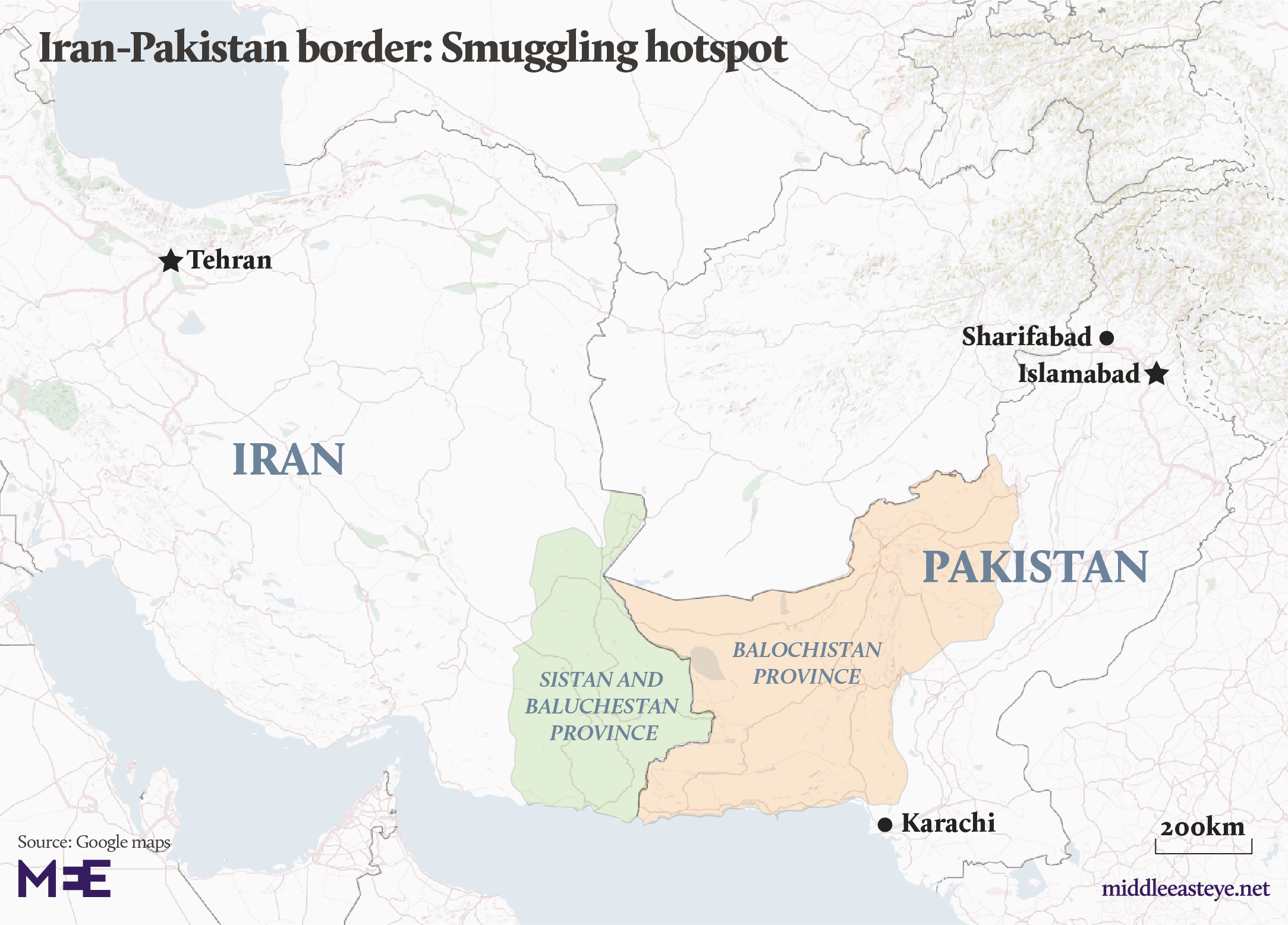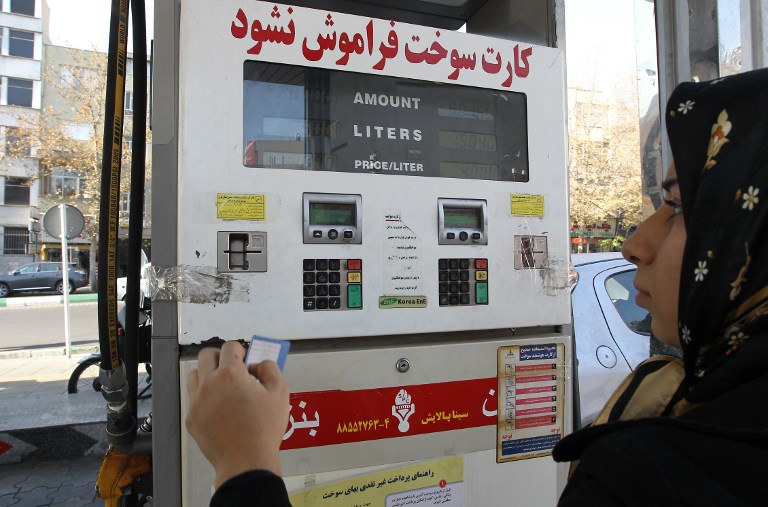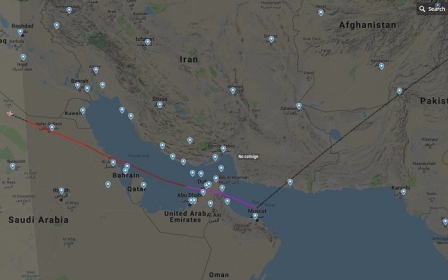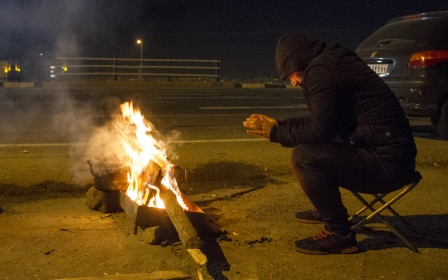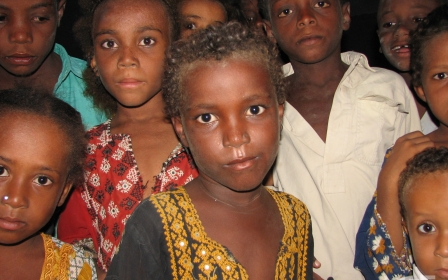Diesel, drugs - and kids: Pakistani girl caught up in smuggling at Iran border
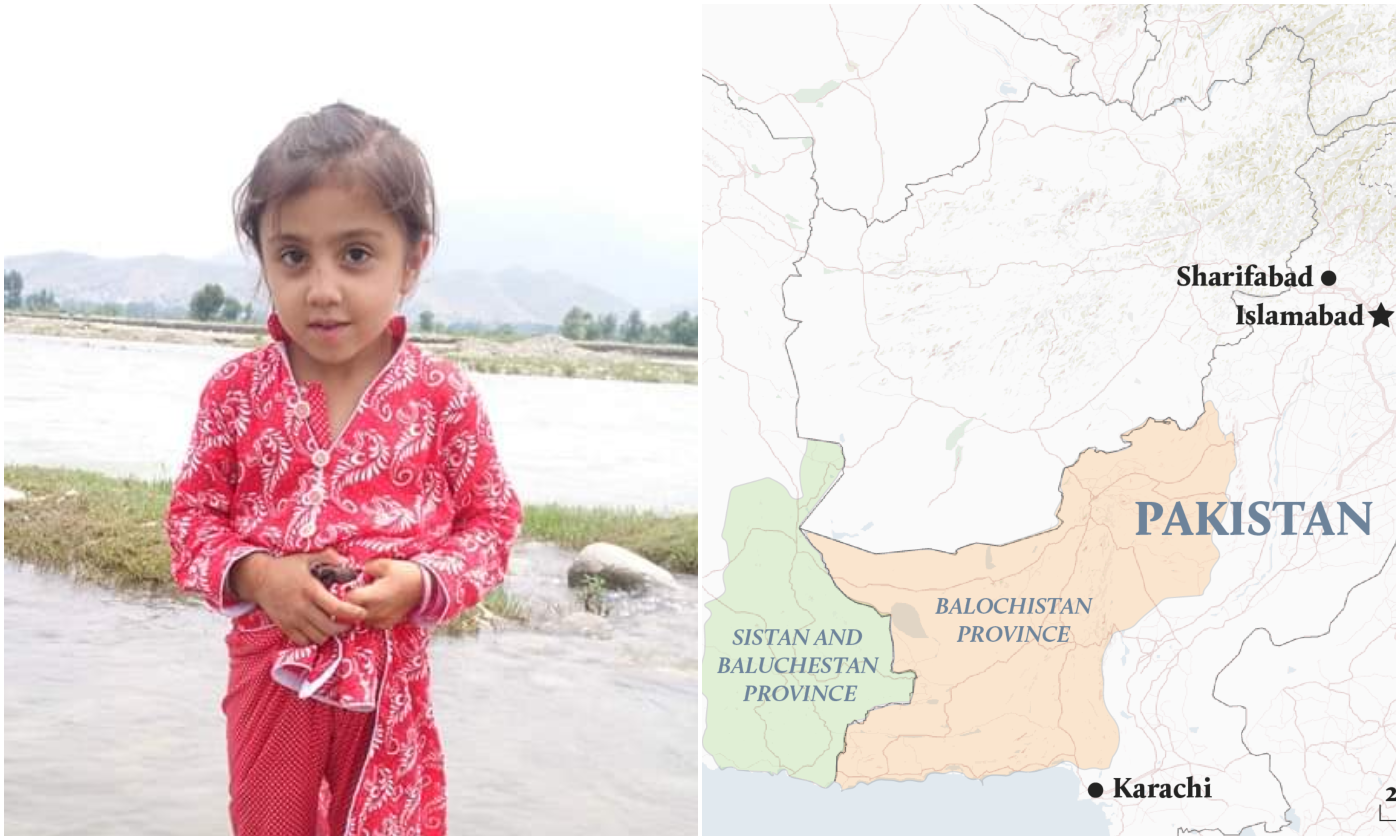
The last time Farishtay Noor’s family saw the six-year-old, she was playing a game of catch in the street with other children on a September afternoon outside her home in Sharifabad.
At least that was true until footage spread around Pakistan in December, showing a group of seven children being pulled out of the belly of an empty oil tanker in Iran.
Wailing atop the tanker, the children, authorities said, had been smuggled across the Iran-Pakistan border. Farishtay’s family believes she may have been among them.
“I have watched the video on my mobile, many times, I’ve shared it with the extended family,” her father, Hazrat Bilal, told Middle East Eye by phone. “We need to know if this is our little girl.”
New MEE newsletter: Jerusalem Dispatch
Sign up to get the latest insights and analysis on Israel-Palestine, alongside Turkey Unpacked and other MEE newsletters
Smuggling along the Iran-Pakistan border has been a lucrative activity for years, particularly for illegal diesel traders - both Pakistani and Iranian - benefiting from cheap prices in Iran and shortages in Pakistan.
'We need to know if this is our little girl'
- Hazrat Bilal, father of Farishtay Noor
With the latest round of US sanctions, the well-worn trail of illicit trade is busy once again. Experts say there has been a major spike in drugs and arms crossing the border. The footage of the children suggests human trafficking along the trail is also thriving.
“In the last few months, since the crumbling of the Iranian rial, the corruption has increased and Iranians are looking for ways and means to make fast cash to feed their families,” said Holly Dagres, a non-resident fellow at the Washington, DC-based Atlantic Council.
Diesel, however, remains the big business in neighbouring Pakistan which is importing 85 percent of its petroleum at a time when it is plagued by an $18bn current account deficit. Gas prices are around 40 times higher than those in Iran.
Baloch brothers
Using Iranian vehicles without number plates, smugglers on either side of the border transport up to 40 gallons of oil at a time, driving in large convoys at fast speed to avoid capture.
Many of the smugglers are Baloch, an ethnic minority who live in Iran, Pakistan and Aghanistan and speak the Balochi language, are related to one another, even if they are on different sides of the border. As cousin helps cousin, familial links are useful in keeping the border trade running smoothly.
As they make their journey, smugglers pay bribes to local levy officers, both Iranian and Pakistani, at checkpoints every five kilometres or so in the isolated border area.
'Makran is thriving, thanks to our Baloch brothers in Iran,'
- Diesel smuggler
A smuggler, who declined to give his name so he could continue his operations, told Middle East Eye that payments range from 150-250 rupees ($1.07 - $1.79) which is a significant income for the officers given the volume of vehicles passing through.
Once the diesel passes through, it is sold across the Balochistan province and goes as far as Karachi, more than 500km from the border.
“Makran has been transformed, look around Makran,” a second smuggler, who also spoke on the condition of anonymity, told MEE in Makran, in the Balochistan province.
“Makran is thriving, thanks to our Baloch brothers in Iran, we have done well. We can crisscross the border. We are protected, our sales are never compromised.”
Unstoppable black market
Over the years, the Iranian government has attempted to curb diesel smuggling by issuing cards to ration the subsidised fuel that Iranians can receive.
But these efforts have only hurt Iranians and have done little to stop the black market trade, said Arash Azizi, a New York-based writer on Iranian affairs.
“Fuel cards only play a limited role,” Azizi told MEE by phone, pointing out that fuel is usually taken before the gas reaches the pumps at stations. “Reports also show that smugglers have strong enough networks to manipulate the fuel card system if need be."
In December, the Iranian news website Khabar Online published an investigation on smuggling and reported that 30 to 40 million litres of petrol were crossing the border each day. Azizi said that’s equivalent to the amount the Iranian Ministry of Oil imports over a year.
Recently, Aziz pointed out, the head of the anti-smuggling commission in Iran's Sistan and Baluchestan province said publicly that 80 percent of the fuel entering his province came from three other provinces - South Khorasan, Hormozgan and Bushehr - which suggest a strong level of coordination.
There have been allegations and reports that the Iranian Revolutionary Guards Corps (IRGC) are supporting illegal smuggling in order to make a profit.
While there is an IRGC network that smuggles alcohol, satellite dishes and dollars, Dagres said the fuel trade is more of a local endeavour focused on fast cash that wouldn’t interest the guard corps.
While Iran has tried ration cards to stem the trade, the Pakistani government, which is very aware of the situation, has done little to curb the smuggling, nor have officials said much about the black market publicly.
Finding Farishtay
As the trade continues and smugglers are enriched, Hazrat Bilal remains frantic. He is trying to get a passport to go to Iran and search for Farishtay.
“I have told the local police in Mardan, I need to speak with officials in Islamabad, who will be able to connect me with my daughter in Iran, but I have yet to receive a response,” he said.
'I can understand why families are not satisfied with the government’s response'
- Shahnam Khan, Pakistan International Human Rights Organisation
According to a 2018 US State Department report, Pakistan has been a source, transit and destination country for human trafficking for years, and there is a history of children picked up or transited through the country ending up as slaves in Iran, among other locations.
Shahnam Khan, media advisor for the Pakistan International Human Rights Organisation, said there is, in fact, a known gang kidnapping children in the district of Mardan where Farishtay disappeared.
But he also said details around the case are murky. He said he received a call from officials at the Foreign Office in Pakistan who told him that the children in the viral video were Afghan and travelling with their father who, inexplicably, put them inside the tanker.
The Iranian government has also said that the children in the video are from Afghanistan, not Pakistan, said Khan.
“I can understand why families are not satisfied with the government’s response that these children are from Afghanistan as there has been no formal identification,” Khan said.
So Bilal continues to push to go to Iran, to investigate the situation for himself as fears grow the porous border, bringing fuel, could ferry away even more children.
Middle East Eye delivers independent and unrivalled coverage and analysis of the Middle East, North Africa and beyond. To learn more about republishing this content and the associated fees, please fill out this form. More about MEE can be found here.


